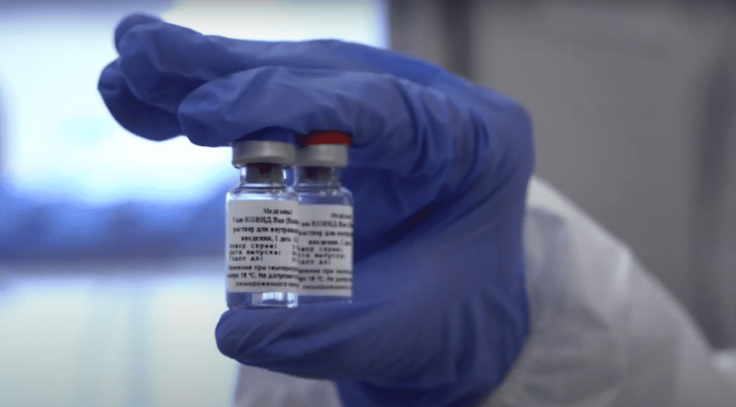Days after Pfizer revealed the first Phase 3 trial data of its COVID-19 vaccine candidate, the Russian authorities—feeling lagged behind in the Coronavirus vaccine race—immediately announced that their vaccine candidate is also showed promising results. Now the country is planning for mass vaccination.
While experts are calling the Russian data encouraging, they also cautioned that the results are premature as well as based on very low numbers. Russia's Sputnik V is a traditionally designed vaccine and it made headlines months ago after Russian President Vladimir Putin granted it regulatory approval before the Phase 3 trial began. This vaccine uses a harmless engineered adenovirus that helps the immune system recognize the protein novel Coronavirus uses to infect cells.

A recently issued press release by the country's National Research Center for Epidemiology and Microbiology has provided the opportunity to look at the Phase 3 trial data of the controversial Sputnik V. It stated that while 40,000 people have been enrolled in the ongoing trial, only 16,000 participants have progressed far enough to be included in this interim analysis.
The final phase of a vaccine trial usually works by enrolling a large volume of trial subjects who are randomly split into two groups—active and placebo groups. Once a certain number of confirmed infections are found, a review board then analyzes the data.
In terms of the Pfizer vaccine, the data, collected from more than 40,000 trial subjects, was based on 94 confirmed COVID-19 cases. So, the claim of 90 percent effective means that less than 10 of those confirmed cases were in the active vaccine group.
But Sputnik V researchers claimed that the vaccine is 92 percent effective and the finding is based on only 20 confirmed novel Coronavirus cases from a cohort of 16,000, much less than what is required to trigger interim analyses in other Coronavirus vaccine trials.
The Data Causing Worries
Eleanor Riley, an infectious disease specialist from the University of Edinburgh said that even though the Sputnik V data is encouraging, she is worried that it has been rushed out to compete with the recent Pfizer announcement.
She said that all trials need to be carried out to the highest possible standards and it is particularly important that the pre-set criteria for unblinding the trial data are adhered to avoid cherry-picking the data. "Anything less than this risks a public loss of trust in all vaccines, which would be a disaster," said the expert.
Many other experts also agree that the new announcement is premature, and there are many unanswered questions, such as whether Sputnik V is preventing infection or protecting from severe disease. Charles Bangham, from Imperial College London, called these preliminary results reassuring but noted that there are pros and cons of such vaccines.
He said that the Russian vaccine strategy has some advantages, "notably the less stringent need for cold storage, but the adenoviruses used are also likely to produce more side-effects" that would include fever or headache. Bangham added that proper evaluation of the safety and efficacy needs to be confirmed, as well as the duration of protection, and the vaccine effectiveness in the elderly should be confirmed.

Phase 3 trials of the Sputnik V vaccine are ongoing. The researchers have claimed that all data will be published in peer-reviewed journals. However, while still there are so much confusion and questions about the vaccine, Alexander Gintsburg, director of the Gamaleya Center—the developers of the Russian vaccine—suggested mass vaccination in Russia that could begin in the next few weeks.
"The publication of the interim results of the post-registration clinical trials that convincingly demonstrate Sputnik V vaccine's efficacy gives way to mass vaccination in Russia against COVID-19 in the coming weeks," said Gintsburg. He also noted that as the vaccine production has increased at new manufacturing sites, it will soon be available for "a wider population".









